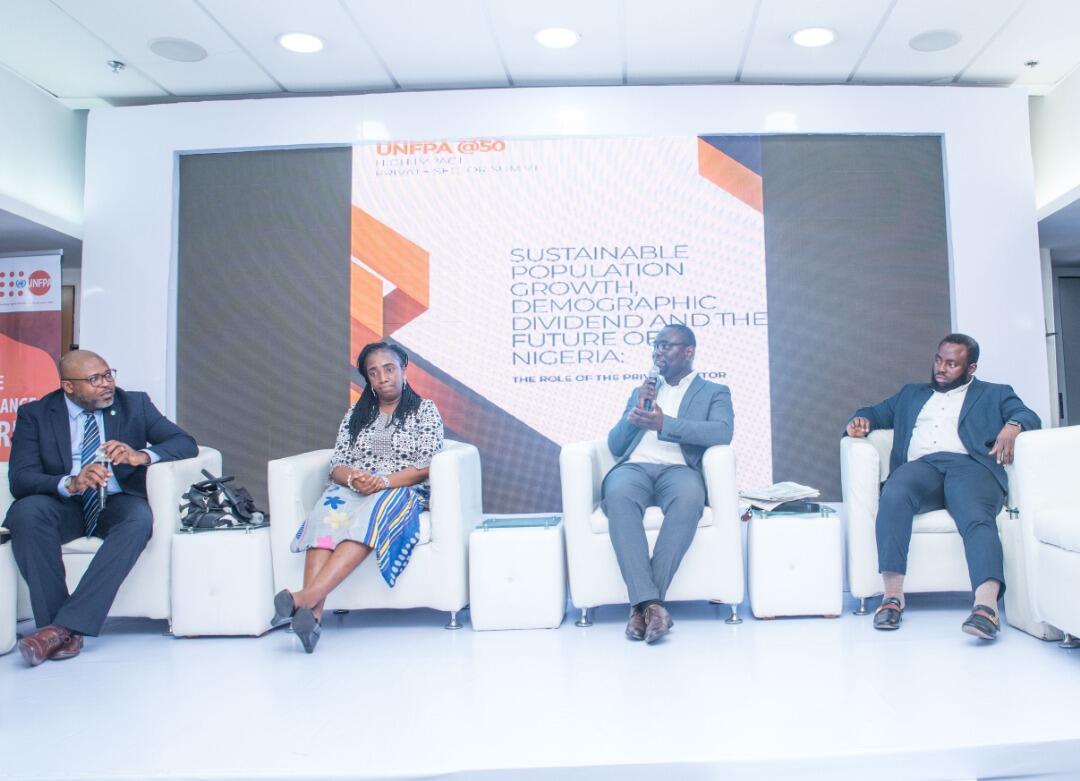Celebration of the UNFPA @50 and ICPD@25 through Private Sector engagement
Over 150 private sector entities gathered at the Access Bank building in Lagos Nigeria to celebrate United Nations Population Fund (UNFPA) at 50 and the International Conference on Population and Development (ICPD) at 25. The celebration showcased the impact of UNFPA in advancing the ICPD agenda in Nigeria for the last 25 years. The event marked a new beginning for long-term partnerships with the private sector to advance Maternal Health, Family planning and demographic dividend in order to improve the lives of women and girls in the country. Chief Executive Officers of big financial institutes, Capitan of industrials including of Oil and Gas Companies in Nigeria attended during the event. Some of the notable companies include, Access Bank Plc, Coca-Cola Nigeria Limited, Bovas and company limited, Microsoft Nigeria, Dufil Nigeria, Oando Foundation, West Africa Gas Pipeline Company, DKT Nigeria, HACEY Health Initiative, Lagos Business School, Nigeria Breweries Plc, and Society of Gynecology & Obstetrics of Nigeria (SOGON).
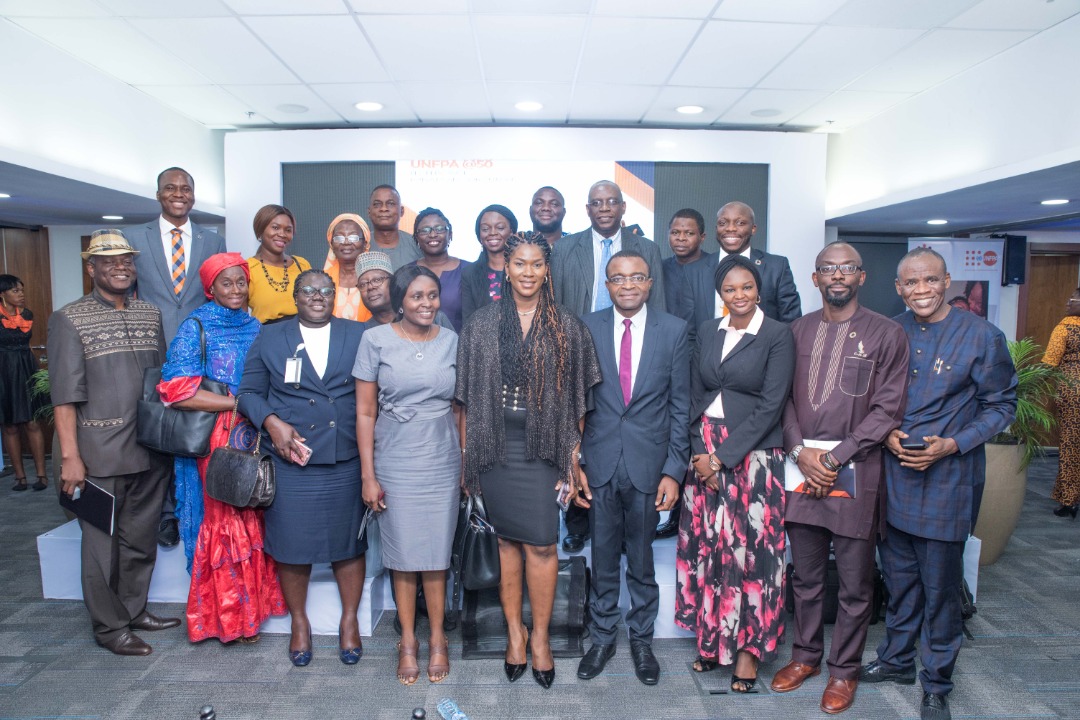
Dr. Jide Idris, the immediate past Commissioner for health for the Lagos State government gave an overview of the impact of UNFPA’s work in Nigeria. He said, “having worked in the Lagos state ministry of health for over three decades, I can attest to the outstanding contribution of UNFPA in addressing the issues of women and girls and advancing the ICPD agenda in the last 25 years in Nigeria.” In addition, during his presentation, he charged the private sector to take on the role of addressing the bottlenecks in reaching women and girls with quality services around maternal health, gender based violence and family planning. He maintained that the private sector has innovative strategy in communications and penetration of the population due to its expansive reach.
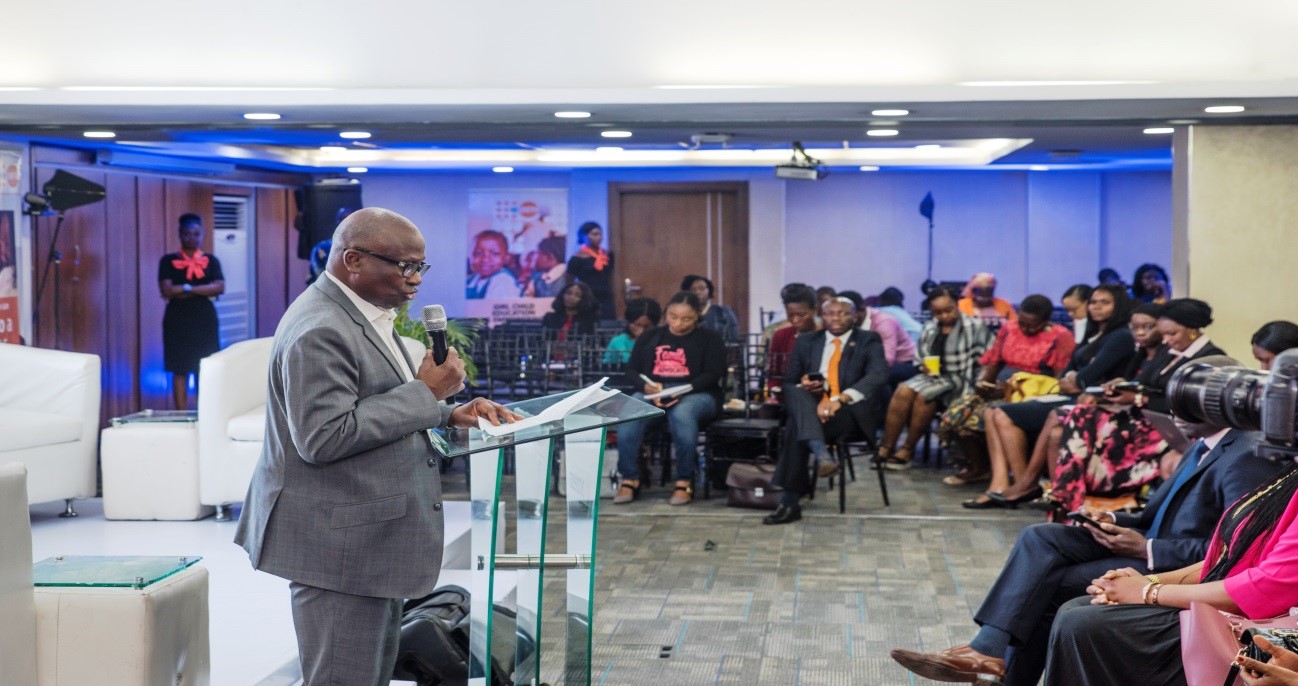
Ms. Omobolanle Victor-Laniyan, Head Sustainability Access Bank, gave the opening remark on behalf of the CEO of Access Bank, congratulating UNFPA for the great impact achieved in the last 50 years in improving the lives of women and girls. In her remark she emphasized the need to prioritize people as the primary gateway to ensuring a sustainable world. She said sustainability is about creating shared value for all, especially women and girls, whose role shapes communities and controls societal narratives. She insisted that “achieving sustainable growth requires key action from all sectors especially the private sectors because of their role in shaping the economic and employment space for young people.”
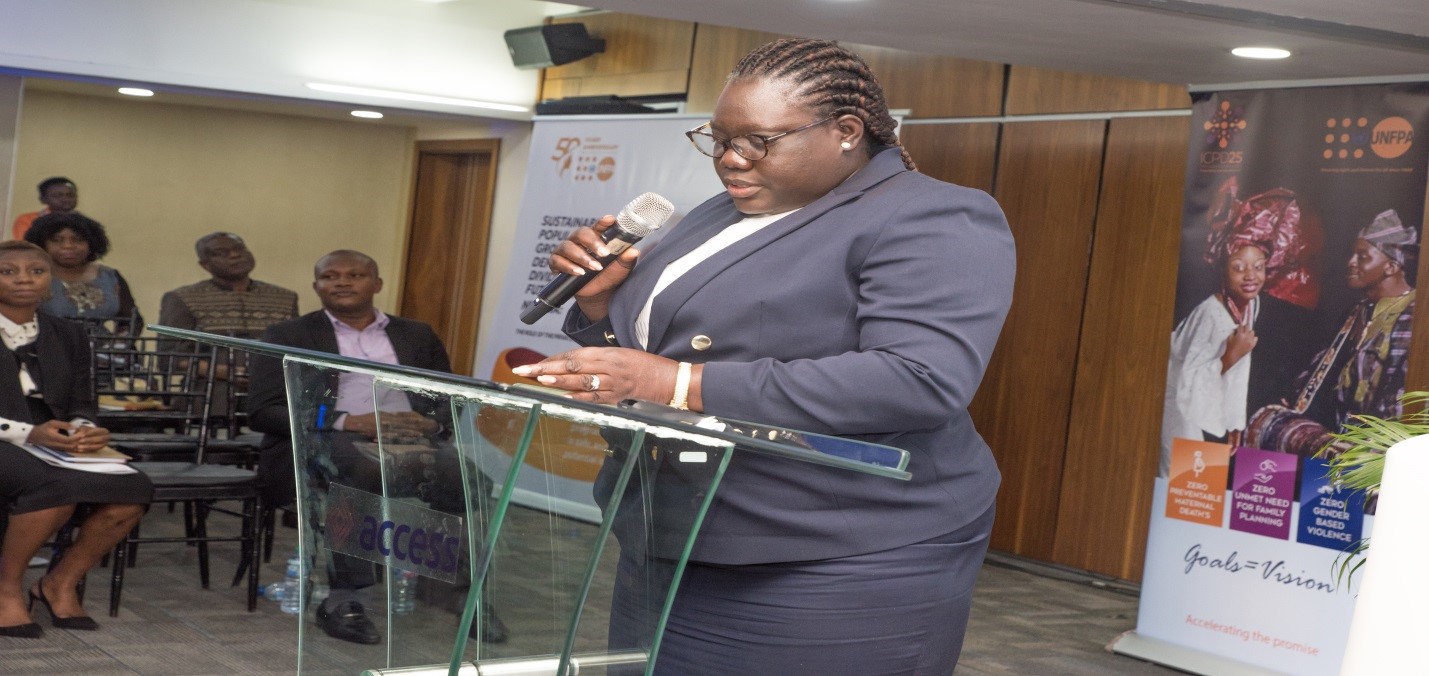
Dr. Eugene Kongnyuy Representative a.i gave the commemorative speech where he outlined what has changed in last 25 years of the ICPD implementation. The last 25 years has showed significant improvement in addressing population issues through an improved human right approach to population issues; he noted that global fertility rate has reduced from 5 to 2.5 and the world population has increased from 3.5billion in 1994 to about 7.7 billion today. He also noted the significant shift from concerns focused on numbers to the people. More value is now placed on improving the quality of the population. Commenting on the peculiar situation in Nigeria, he stressed the need to conduct a population census in Nigeria, which is overdue, to give a good dynamic of the population that will enhance planning purpose”
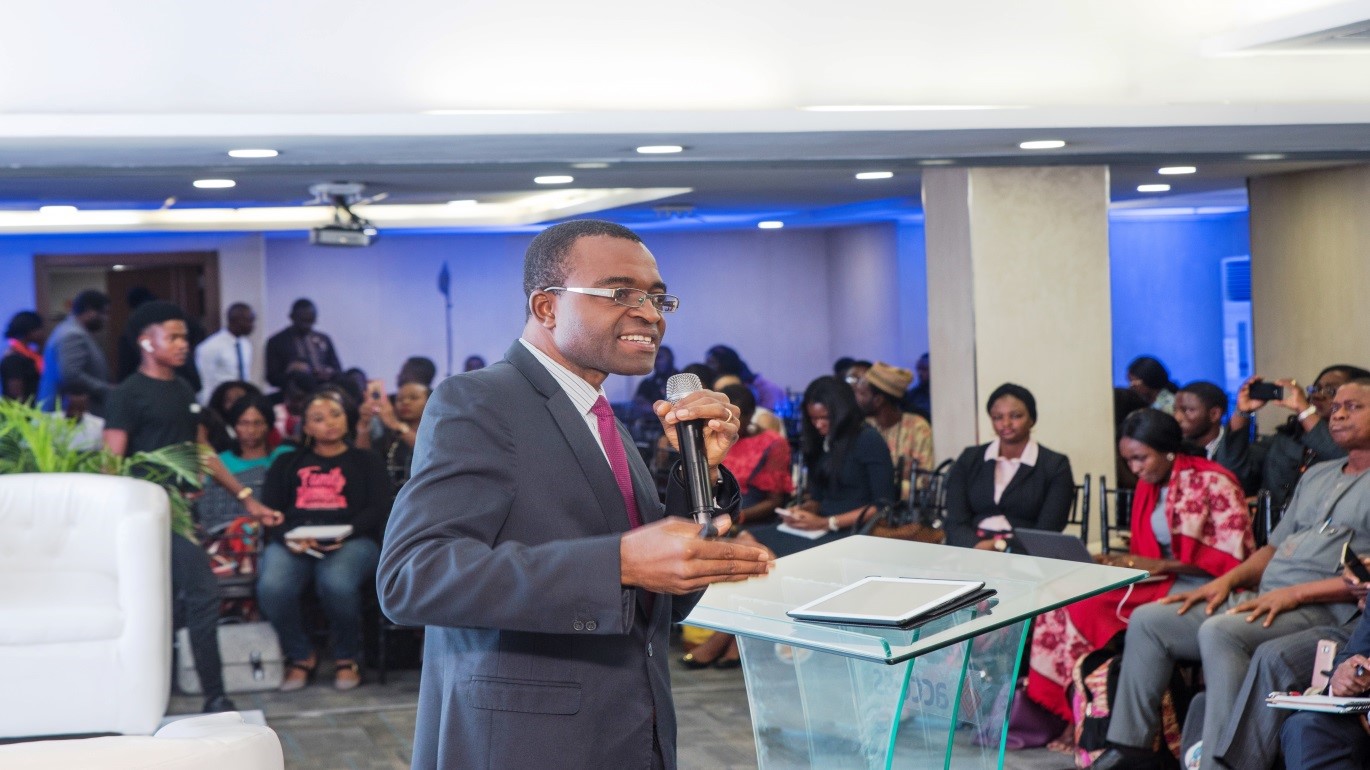
Mr. Osaretin Adonri; UNFPA Assistant Representative gave the key note address on sustainable population growth, demographic dividend and the future of Nigeria. He stressed the interconnectedness of population growth, the structure of the population, demographic dividend and economic development. He highlighted the importance of human rights-based and gender-responsive programming for universal access to sexual and reproductive health and rights, including voluntary family planning, and education, including comprehensive sexuality education, and underscored the need for more effective and stronger partnerships between development partners and the private sector.
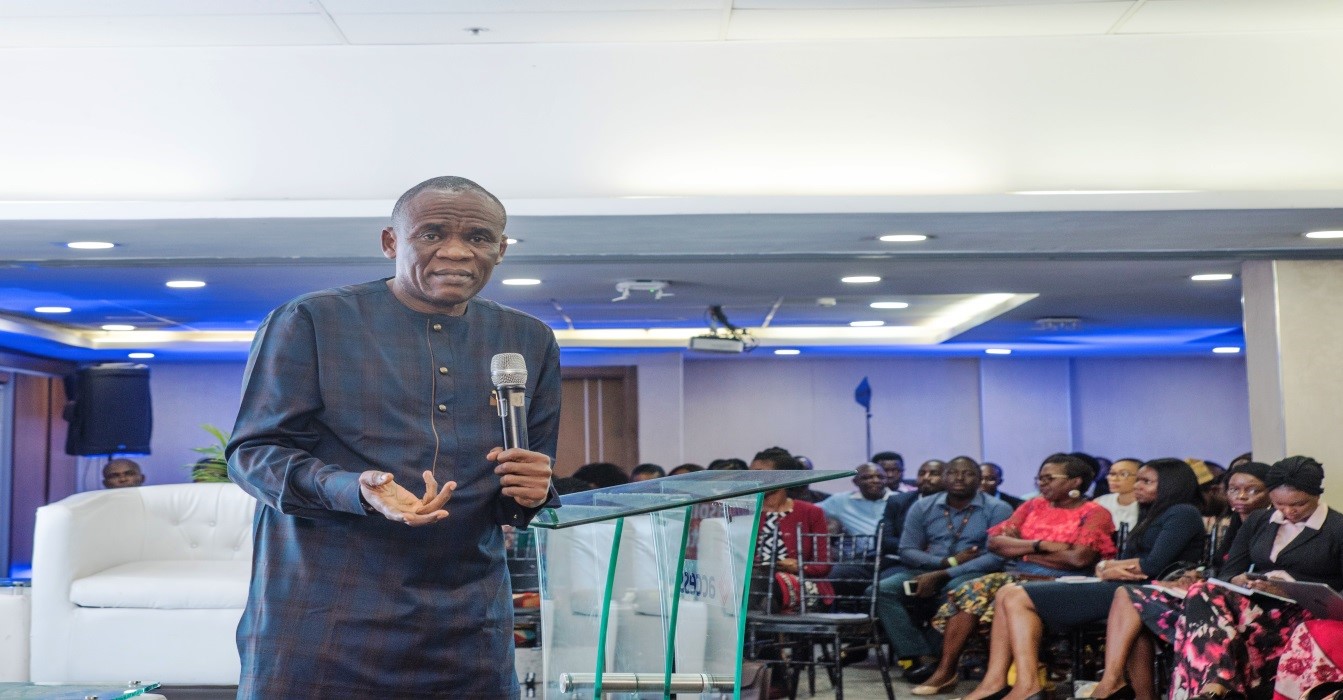
The summit had various panel sessions with panelists mainly from the private sectors. The panel session created a platform to discuss the relevant issues, proffer solutions, create avenues to collaborate, and leverage on various comparative advantages. The numerous panel discussions on private sector-driven call to action centered on pulling resources, expertise, platforms and strategies together to advance the health of the women and girls in Nigeria.

